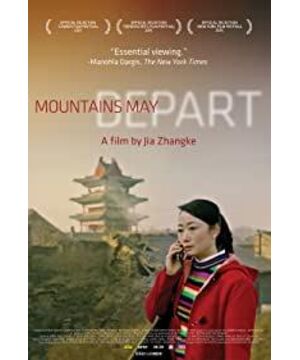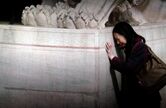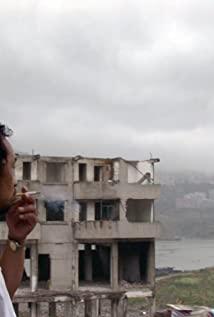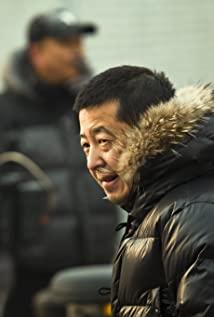On the sixth day of the Toronto Film Festival, I finally saw this long-awaited Chinese-language film - "The Old Man of the Mountains and Rivers", which tells the story in three stages. The three stories take place in the past, today, and the future. It is worth mentioning that Jia Zhangke's last work "Tian Destiny" uses the transformation of space to explain the story, which happens to complete the director's own time and space travel with the time transformation of this film. "Old Man of Mountains and Rivers" is still presented in front of the audience in a very Jia Zhangke manner, with a touch of emotion and a slow picture. The faint emotion in this film moved me, a man who had been drifting overseas for six years, like a stormy sea.
I was moved because the stories in the movie had a certain relationship with my being overseas. Seeing the film footage as time passed, time passed by, and family members separated across the ocean, was really a vivid portrayal of every overseas traveller. The director is a person who is greedy for his hometown. During the development of the film over time, in three different places at different times, one thing has appeared in all three stories, and that is the ancient tower in the protagonist's hometown. This tower is like a coordinate, witnessing the development of the city and the gathering and separation of this land. When Tao was a young girl, the tower witnessed her love with two suitors; when she had to send her children to Shanghai because of marriage, the tower witnessed the separation of Tao and her son; when Tao was old , the tower became the only thing that stayed with Tao from beginning to end. This tower is not only a witness, but in my opinion, it has become a spiritual sustenance for the director to his hometown in Fenyang. It is also the director's reluctance to part with his hometown that made me see how friendly and beautiful the ancient city of Fenyang in the camera lens. Even every dilapidated brick and tile moved me more than the high-rise buildings overseas. Another thing that appears in all three stories is Ye Qianwen's "Treasure". This song is a memory of the director's own youth, and it is also a strong memory of the protagonist in the movie, recalling that he chased after him when he was young. Those Cantonese songs, even if you don't know the meaning of the lyrics, are still filled with emotion every time you hear them. This is the second place that touched me. Jia Zhangke's feelings, so lightly described, have the power to destroy the old and make every person who is nostalgic enough to cry.
Before the movie started, Director Jia introduced that the movie was about time and love, and he said that time did not change anything. I think this sentence is so simple and powerful. Time can be a sharp blade, leaving wrinkles on our faces, but what it can never weaken is the deep nostalgia in everyone's heart, no matter how far apart they are. The love and affection of relatives that cannot be stopped by far. The last scene of the film is the most moving movie scene I have seen this year--the time from 1999 to 2025, when the innocent girl has become an old man with gray temples, she stubbornly believes that her son who is far overseas will appear in her. In front of him, he runs his own simple life alone. When she walked alone in the wilderness that she had been to many times in her life, the snowflakes fell, quietly foiling her loneliness. At this time, she decided to dance, the dance that she loved 25 years ago, she may be thinking of herself back then, or she may be feeling the passage of time. At this time, the camera is slowly zoomed out, an inflexible body is trying to restore the passion of the year, and the back is lonely and beautiful against the background of snowflakes. In the distance of the camera, the tower that has been standing there appears again, just like her, lonely, simple, and persistent...
View more about Mountains May Depart reviews











